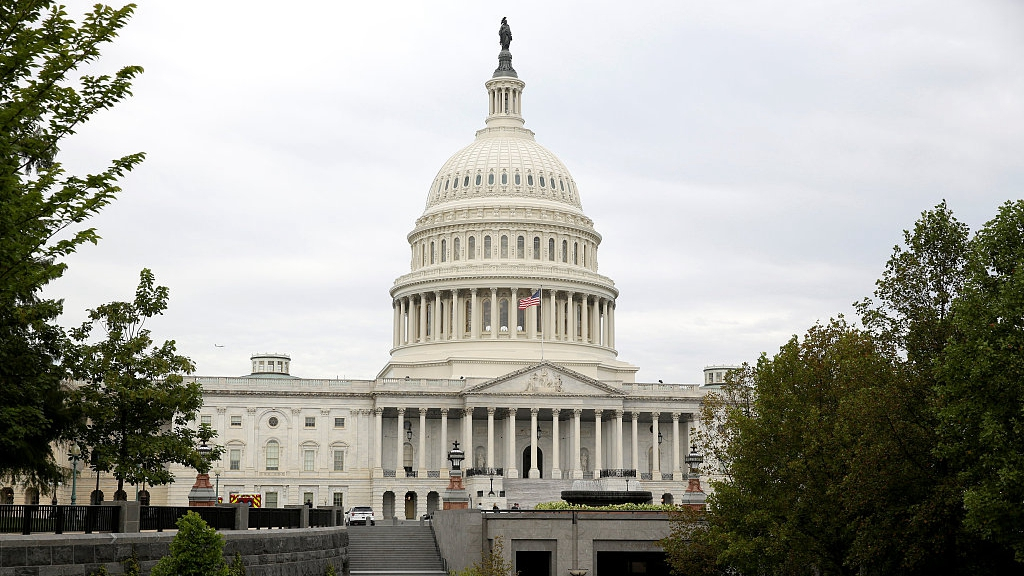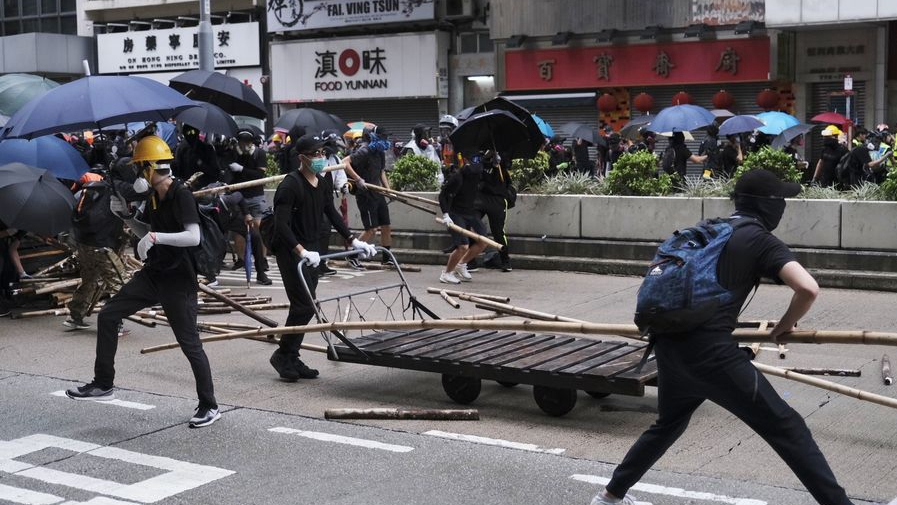
The U.S. Capitol in Washington, U.S., September 12, 2017. /VCG Photo
The U.S. Capitol in Washington, U.S., September 12, 2017. /VCG Photo
Editor's note: Tom Fowdy is a British political and international relations analyst and a graduate of Durham and Oxford universities. He writes on topics pertaining to China, the DPRK, Britain and the United States. The article reflects the author's opinions, and not necessarily the views of CGTN.
On the night of November 19, the United States Senate passed the "Hong Kong Human Rights and Democracy Act" via a unanimous process, days after having placed it on a "fast track course" which allowed it to proceed without a formal debate mechanism providing no members objected to it.
The bill, sponsored by ideological hardliners like Marco Rubio, aims in practice to subject the city's "special status" as a free port to continual review by American authorities and mandates it to follow a number of U.S. foreign policy goals, save such a distinction be taken away.
Having been passed by the fast track procedure, the bill does not directly go to the White House to be signed by the president. Instead, it must be formally amended behind the scenes to harmonize it with the version passed in the House of Representatives in early October.
Whether the Trump administration will support the legislation remains to be seen, given evidence of a gap in positions on the issue between the White House and Congress, who have been exceptionally vocal about events in Hong Kong despite escalating violence on behalf of protesters. In doing so, they are openly rewarding the perpetrators for their behavior and escalating instability.
Regardless, this is cynical and haughty opportunism from the United States Senate. The real goal of politicians such as Marco Rubio in pushing this act is not really about promoting democracy at all, but pursuing a hard line geopolitical agenda against China with U.S. foreign policy goals in mind.
The text of the act itself does not lie, mandating little about human rights and everything about sanctions, blacklisting and other U.S. foreign policy issues. In turn, congressmen have been in complete denial about the extreme violence pursued by activists in the city, demonizing and exaggerating the response of authorities.
How is the so-called Hong Kong Human Rights and Democracy Act a Trojan horse for other U.S. foreign policy goals?
Let's turn to the text of the act itself to elaborate: While the act specifies Hong Kong's autonomy, Section 205 also mandates that the city is in compliance with "export controls, and any other agreements and forms of exchange involving dual use, critical, or other sensitive technologies." Almost immediately, that specifies a desire to export the U.S. technology war against China into the city, thus a demand Hong Kong restricts the flow of U.S. technology into China itself.
But it doesn't end with this: Section Five on a similar ground demands "an assessment of the nature and extent of violations of United States export control and sanctions laws occurring in Hong Kong." This goes beyond the question of China and specifies the city must also be in full compliance with U.S. unilateral sanctions measures applied to Iran and the DPRK, as well as anything "that otherwise present a threat to the national security, foreign policy, or economy of the United States" – and we know how easily it is for something to be termed such.
The act further specifies that any failure to uphold "international obligations" to the United States in these areas represents an "erosion of autonomy" and thus subjects the city to a potential cancellation of its "free port" status.

Rioters block roads, attack bystanders and vandalize public and private facilities in Kowloon, Hong Kong, China, October 6, 2019. /Xinhua Photo
Rioters block roads, attack bystanders and vandalize public and private facilities in Kowloon, Hong Kong, China, October 6, 2019. /Xinhua Photo
In this case, the text of the act is not so much about defending freedom as it is making sure Hong Kong is in compliance with what American wants, thus aiming to transform it into a vehicle for its own foreign policy objectives.
However, the consequences are much more far reaching than that: This is a message of reward and incentive to the most violent of protesters. It is a green light that they can continue their activities and lose no support for it, or be held accountable by nobody.
A week after protesters set a man on fire and killed an elderly gentleman with a brick, they are gaining renewed "glorification" from American politicians. This tells them that they should not stop, but they continue to pursue violence and destruction.
Thus, this is a dark day for Hong Kong. Protesters, who somehow believe the U.S. is supporting them, are in reality signing up to have their city subjugated by the United States under the disguise of false promises.
This act will perpetuate violence, unrest and disorder in the city, all while potentially robbing it of the unique market privileges which made it into the prosperous hub we once knew it to be. This is an opportunistic and inherently political move by contention hungry politicians, and it is Hong Kong people who will pay for it.
(If you want to contribute and have specific expertise, please contact us at opinions@cgtn.com)